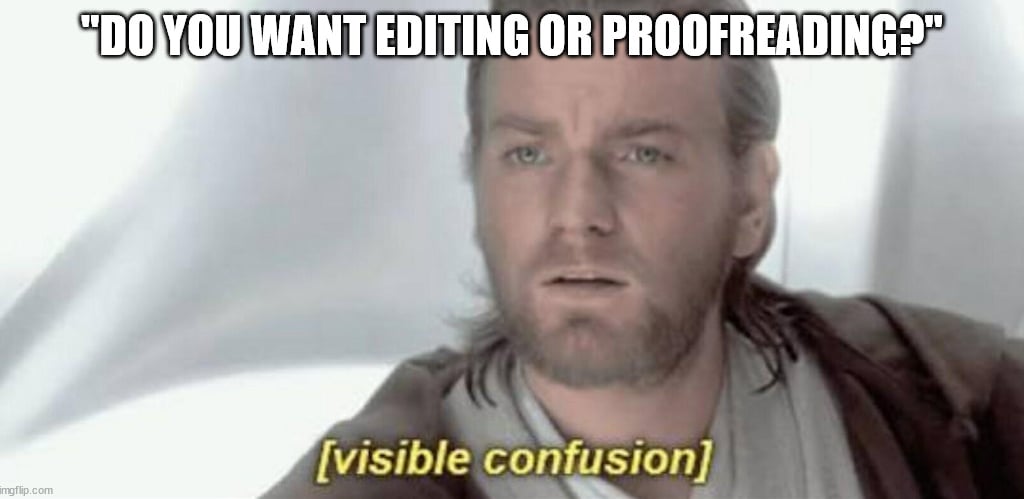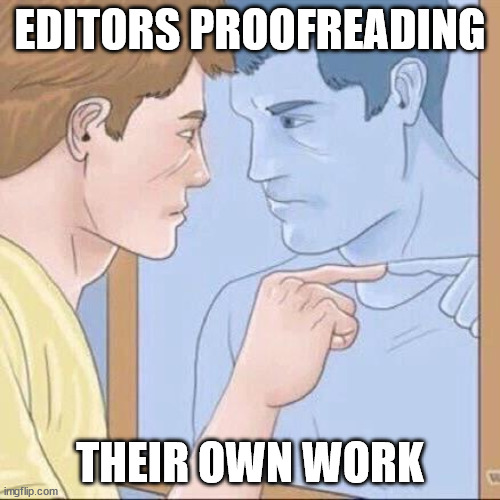Editing vs proofreading: what’s the difference?
Find out what the difference between editing vs proofreading is, including which you might need for your specific project needs.
Adam Woodard
2 min read


Understanding the difference between editing vs proofreading can save you both time and money if you’re looking for these services. While most writing would benefit from some proofreading, editing isn’t always necessary. If you’re unsure of the difference, I’ll do my best to explain it below.
In a nutshell: Editing is the process of revising and amending written work to ensure that it meets the style and standards that are applicable to it. Proofreading is the final stage before a piece of writing is finished, where the proofreader checks it to ensure it’s free from spelling, grammar, and punctuation errors.
As you can imagine, there’s no small amount of overlap between these two tasks. For this reason, you may find these terms being used interchangeably. This can cause confusion for everyone involved, especially when it leads to different expectations between an editor/proofreader and their client.
Goals of proofreading and editing
A useful way of differentiating between the two is understanding the different goals of each process.
The goal of an editor is to ensure that a piece of writing effectively conveys what it’s supposed to. This means checking and improving formatting, overall structure, paragraph structure, language usage, citations, and the actual content of the writing. They might assess the writing’s persuasiveness, accuracy, and adherence to specific requirements or guidelines.
The goal of a proofreader is to ensure that any and all surface-level mistakes are removed from the final piece of writing. They’re typically less concerned with what someone wrote and more concerned with ensuring that they wrote it properly. They can fix grammar, punctuation, and spelling.
Where the editor is concerned with satisfying the reader, the proofreader answers primarily to the English language. Both are key for high-quality writing. For instance, in the absence of editing, a reader might not understand what the writer is trying to say. In the absence of proofreading, a reader might doubt whether the writer knows what they’re saying.
Do I get a proofreader or editor?
This depends on what you’re writing and your skill level. If you’re a highly competent writer who’s capable of reviewing and fixing their own work, you might not need an editor or proofreader at all. In my experience, the need for editing goes out the window sooner than the need for proofreading, as even the best writers make small mistakes that are easier to catch from the outside looking in.
If you’re unsure, it can be a good idea to contact an editor or proofreader and ask them. An honest editor or proofreader will tell you whether you actually need their services. Feedback from your readers will also help you determine which service is most necessary.
It’s worth noting that many editors are fully capable proofreaders. Like myself, some may have started as proofreaders and then developed the necessary skills to perform editing work. That being said, an editor doesn’t necessarily need to be a native speaker or even know how to proofread, provided someone else does the proofreading.
If you’re interested in these services or want to know more, you can contact me or check my editing and proofreading page.


